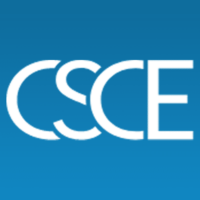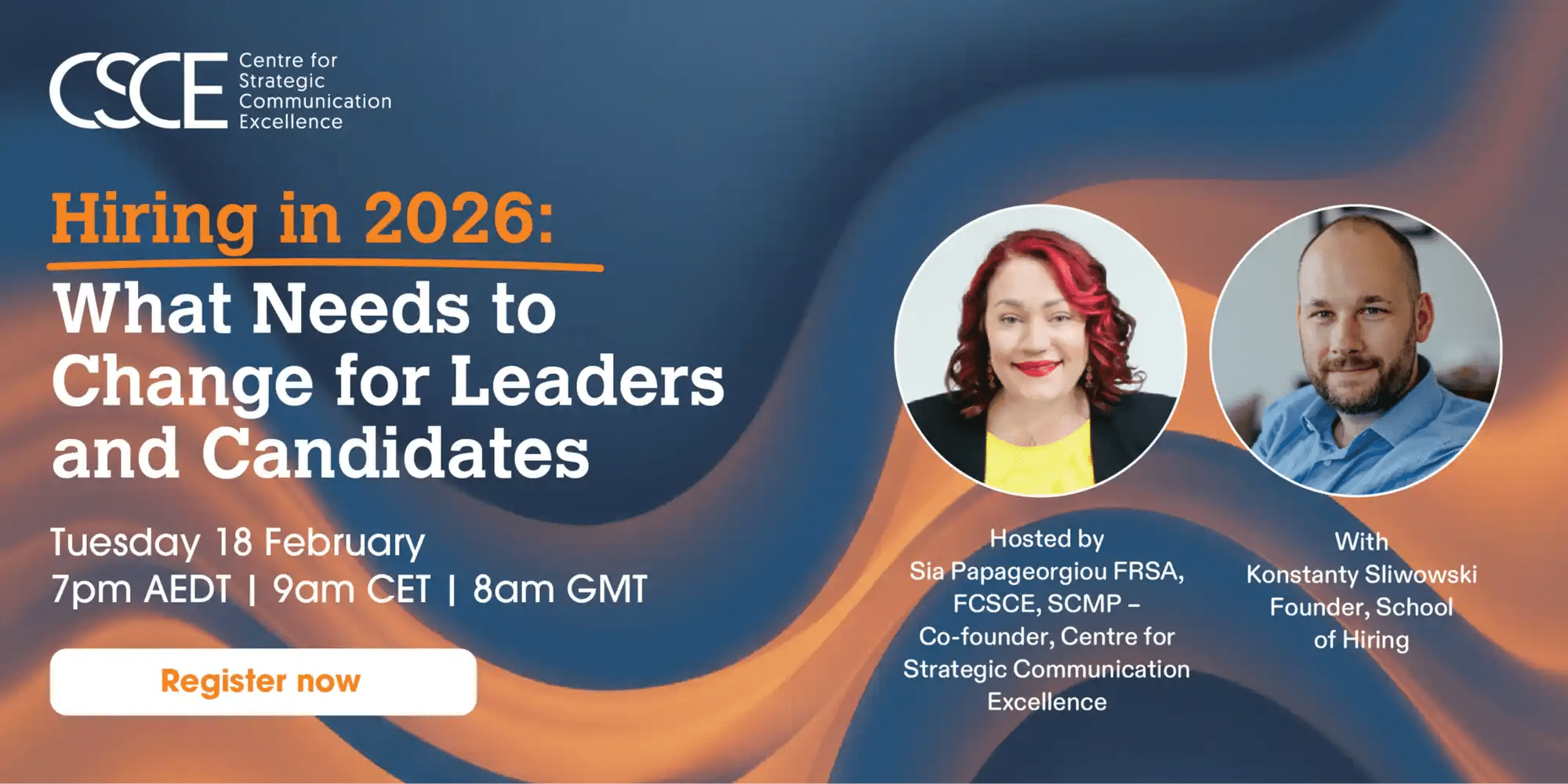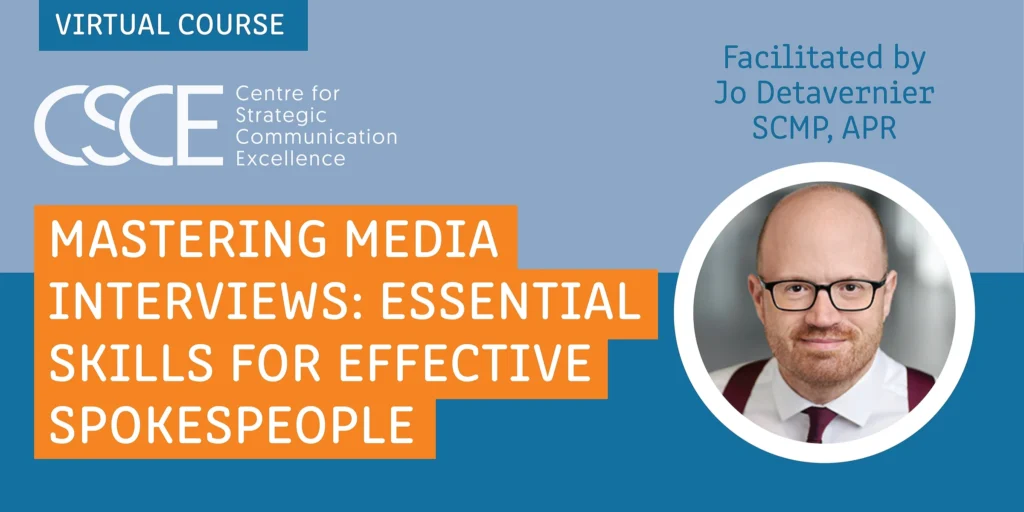“I believe in evidence. I believe in observation, measurement, and reasoning, confirmed by independent observers. I’ll believe anything, no matter how wild and ridiculous, if there is evidence for it. The wilder and more ridiculous something is, however, the firmer and more solid the evidence will have to be.” Isaac Asimov
Russian-born Isaac Asimov was a US biochemistry professor with a flair for writing science fiction. He published nearly 500 books, some highlighting a future that he couldn’t have possibly known would become reality. If Asimov were alive today in this age of connectedness through the internet and social media, he still would have stood by his principles of evidence.
Both communication professionals and journalists are literally caught between a rock and a hard place. The world is divided between those who value logic and evidence, those who understand that connecting with human emotion is a critical pre-requisite to communicate, and those trying to balance those very needs.
In today’s global environment, we see both sides of the coin. Half-truths, lies, embellished stories, and alternative facts. Still, we see journalists and communication professionals call leaders to account, challenging ethics, and demanding evidence, measurement and reasoning.
However, in the communication and marketing professions, we know that emotional decisions are powerful, but evidence trumps everything. Ethical communication stands on the basis of evidence, and communication professionals and educators have an important responsibility to apply, advocate and advise on ethical communication practices.
It begs the question which messengers do we trust? How do we know we are getting the real news and not the fake news? And, how do journalists and communication professionals ensure that audiences know the difference?
According to Edelman’s 2017 Trust Barometer, “Trust in business (52 percent) dropped in 18 countries, while NGOs (53 percent) saw drop-offs as high as 10 points across 21 countries.” The report says, “Trust in media (43 percent) fell precipitously and is at all-time lows in 17 countries, while trust levels in government (41 percent) dropped in 14 markets and is the least trusted institution in half of the 28 countries surveyed.”
The report also noted, “A person like yourself (60 percent) is now just as credible a source of information about a company as is a technical (60 percent) or academic (60 percent) expert, and far more credible than a CEO (37 percent) and government official (29 percent).”
“The world is becoming increasingly complicated and we need a more integrated and informed profession if we are to deal with the demands of a changing context and an ever changing communication landscape”.
Enter the Global Alliance for Public Relations and Communication Management (GA), a confederation of the world’s major PR and communication management associations and institutions, representing 160,000 practitioners and academics around the world.
Led by Professor Anne Gregory, the GA has launched an eight-country study to address the capability requirements of communication professionals, including a deep consideration of what ethical and responsible communication challenges will arise. It will help professional bodies, organisations and communication professionals frame their professional development needs.
Dr Gregory is no stranger to ethics in communication. As the Professor of Corporate Communications at Huddersfield University in the UK, she focuses on capacity building in public relations and corporate communication, including leadership, the strategic role of communication, ethics and globalisation. She is an RMIT University Adjunct Professor.
The Research
As the communication profession responds to a rapidly changing global environment, how do we prepare for the future?
The research engages academic colleagues and communication professionals across six continents to look at the practice in their country. A Delphi study asks experts to describe professional capabilities that cross disciplines and functions.
Beyond traditional competency frameworks, the GA research will produce capabilities statements from around the world. Although there will be a common core, the framework highlights the differences across regions. It will be used by:
- Professional associations to develop customised qualifications
- Academics to inform curriculum
- Employers as a benchmark for recruitment and professional development
- Individuals to plan their personal career development
In addition, the research will produce a wide range of academic articles, a report to the Global Alliance, at least one conference and a variety of publications.
Right now there are more questions than answers.
- What should our profession’s role be in these big debates?
- How are we going to behave in the future?
- What are our priorities going to be?
- What skill sets do we need for the future?
- Where is the profession heading?
- What’s our collective responsibility?
- Are the capabilities we define the right ones, and how will we know they’re the right ones?
“We need to prepare ourselves for our present reality,” said Gregory. “There are countries that either do not have a free press, or have an only partial free press, therefore the practice needs to be different in those countries. The notion that the North American and European model is right, is changing.”
Discussing preliminary research findings of the Global Capabilities Framework at an industry roundtable co-hosted by RMIT and The Centre for Strategic Communication Excellence in Melbourne, she said, “Intercultural and societal perspectives are vitally important in communication practice today. The world is becoming increasingly complicated and we need a more integrated and informed profession if we are to deal with the demands of a changing context and an ever changing communication landscape”.
RMIT’s Dr Marianne Sison leads the Australian component of the study. She spoke of the shift in the development of professional communication education, particularly in Australia, and the “need to embed social psychology and ethics in university curricula to prepare graduates effectively for the profession”.
Attended by senior communication professionals from across academia, the government and private sector along with representatives from IABC Victoria and PRIA, the roundtable discussion focused on whether:
- Alternative facts and fake news are a new development, or whether they simply resurface from time to time in history until they are recognised and dealt with
- Social media and big data provide analytics that breach personal privacy boundaries, and therefore present major ethical questions for communication professionals and others
- Audience reach and engagement through big data analytics is ethical in the first place
Commenting on the current state of affairs, Adrian Cropley, President of Cropley Communication and the Centre for Strategic Communication Excellence, and past global chair of the International Association of Business Communicators emphasised “the need for communication professionals to improve their ties with journalists and the press to limit the spread of fake news and alternative facts”.
RMIT journalism lecturer Gordon Farrer, chief academic investigator for the new RMIT ABC Fact Check unit highlighted the importance of understanding how people form opinions and the potential danger posed to democracy by misinformation and disinformation. He said, “Humans are not fundamentally rational creatures; we are emotional creatures. What we often do is form an opinion based on a gut feeling, then search for the facts to support that feeling”.
“A journalist’s role is to educate people so they can make informed decisions based on trustworthy information. When fact is swept aside and fake news takes over, compounded by social media’s instant, far-reaching impact, the changes are profound. And they’re not good changes,” Farrer said.
Through comprehensive research Anne Gregory and the GA are facilitating a global discussion about the future of the communication profession and our role in the new reality. By taking a page out of Asimov’s book, leading with research and insights, communication professionals can become trusted advisors and business partners.
What will it take? More collaboration between industry and academia, and between journalism and public relations will help future generations of communication professionals become better equipped for the challenges of the future.
Read more about the industry roundtable in Melbourne.
Professor Gregory was an award-winning senior practitioner before becoming an academic and continues to work with high status public and private sector organisations in the UK and overseas. Anne holds a PhD in Public Relations and Communication and is widely recognised as one of the pre-eminent global thought leaders in our profession. She has been President of the Chartered Institute of Public Relations and holds the Sir Stephen Tallents Medal for her outstanding contribution to the profession.






